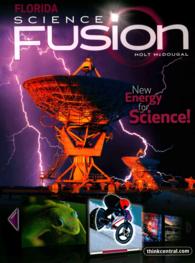- ホーム
- > 洋書
- > 英文書
- > Psychology
Full Description
This revised and updated handbook features a selection of essay-style book reviews by Carol Tavris, written for the Times Literary Supplement, The Chronicle of Higher Education, American Scientist, and The New York Times Book Review. These reviews apply psychological research and principles of scientific thinking to ideas presented in the books. They aim to show how critical thinking can help people assess arguments promoted in the popular culture, and how to separate those that are scientifically sound from those based on "psychobabble"-pop-psych notions dressed up in fancy, sciency-sounding language. These essays may be used to encourage debate in the classroom or as a basis for student papers. Students can be asked to write or present their own points of view on a topic, drawing on other research and the guidelines of critical thinking (defined and described in a prefatory "Note to the Reader") to support their conclusions.
Although these reviews can be used in many social science and composition courses, the topics covered and the critical-thinking guidelines that apply to them correspond to specific material in Carole Wade and Carol Tavris's Psychology and Invitation to Psychology.
Contents
Thinking Critically-and Why We Often Don't
1. "Why won't they admit they're wrong? And other skeptics' mysteries" by Carol Tavris and Elliot Aronson
Personality, Motivation, and Development
2. Outliers, by Malcolm Gladwell
3. Men to Boys: The making of modern immaturity, by Gary Cross
4. Understanding Attachment, by Jean Mercer
5. Love at Goon Park: Harry Harlow and the Science of Affection, by Deborah Blum
6. Happiness: Lessons from a new science, by Richard Layard; Making Happy People: The nature of happiness and its origins in childhood, by Paul Martin; and Going Sane, by Adam Phillips 7. Bright-Sided: How the relentless promotion of positive thinking has undermined America,by Barbara Ehrenreich
8. The Nurture Assumption, by Judith Rich Harris
9. Personality, by Daniel Nettle
10. "Are Girls As Mean As They Say They Are?" (review essay)
Psychotherapy and the Scientist-Practitioner Gap
11. The Body Never Lies, by Alice Miller
12. Into the Minds of Madmen, by Don DeNevi & John Campbell
13. Remembering Trauma, by Richard McNally
14. In Therapy We Trust, by Eva Moskowitz
15. Prisoners of Hate, by Aaron T. Beck
16. Making Us Crazy: DSM-The psychiatric bible and the creation of mental disorders,
by Herb Kutchins and Stuart A. Kirk
17. Of Two Minds: The growing disorder in American psychiatry, by T. M. Luhrmann
Research Methods and Social Issues
18. The Hungry Gene, by Ellen Ruppel Shell
19. The Genius Factory, by David Plotz
20. Rape: A history from 1860 to the present, by Joanna Bourke
21. Sex and the Psyche, by Brett Kahr






